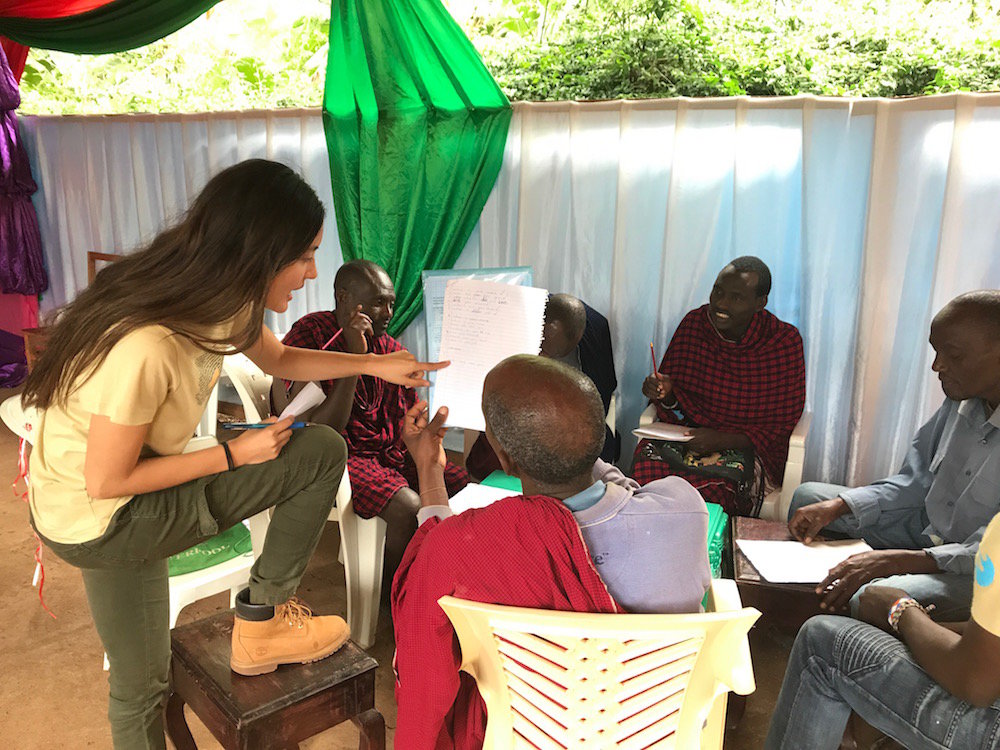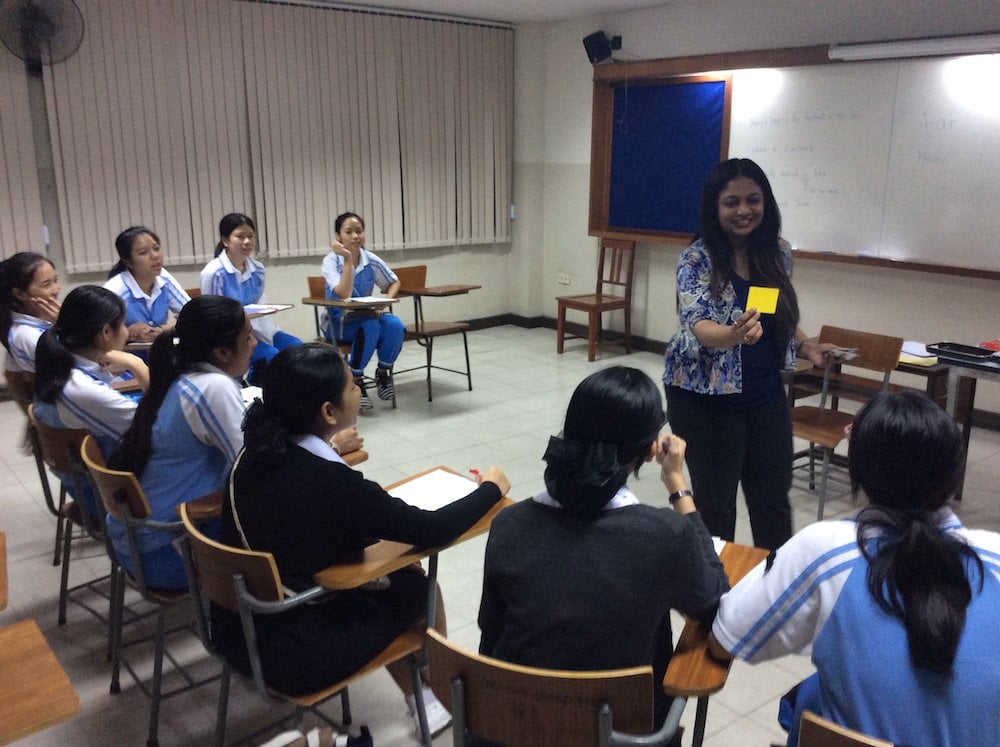How to Master Classroom Management with Expert Advice
To help arm you with as much information as possible before you start your new job overseas, we sat down with an expert in the field to get insight into proven strategies for classroom management.

For beginning teachers, one of the most challenging skills to learn is classroom management.
Defined by the American Psychological Association as “the process by which teachers and schools create and maintain appropriate behaviors of students in classroom settings,” it can take teachers years of study and hard-earned experience in the classroom to master the art of building a foundation for a successful learning environment.
If you’re teaching abroad, you don’t have years to develop these skills. On top of that, you’ll also be in a new country, navigating the cultural nuances in your adoptive country. While many programs overseas will pair you up with a seasoned teacher, you’re still going to need to know the basics so that you can hit the ground running on day one of your new job.
To help arm you with as much information as possible before you start your new job overseas, we sat down with an expert in the field to get insight into proven strategies for classroom management.
Dr. Lea Ann Christenson, Assistant Professor with the Department of Early Childhood Education at Towson University has traveled around the globe leading study abroad programs and delivering training for local teachers in such vast destinations as Zimbabwe, El Salvador and Japan. We sat down with her to provide you with expert advice on classroom management. If you're just getting started as a teacher, be sure to check out our beginner's guide to classroom management.
Classroom Management: An Invisible Skill

Not all skills are easily visible to the outside world. Many of the skills required for teaching are among these, including classroom management.
“Good classroom management is invisible,” said Dr. Christenson. “A lot of people think classroom management is when you are yelling at a student and telling them what to do, but this is not so. Think back to your classrooms that might have looked seamless, but really the teacher had put in a lot of structure to make the day seem to flow so effortlessly.”
“Classroom management is a well prepared and well-planned lesson that engages students at their level,” she continues. “All the rest are tricks and tools to get to that level in the classroom.”
To improve on your own classroom management skills, you’ll first need to recognize that, just because they are invisible, doesn’t mean they aren’t there. As you start to work with teachers abroad, think more deeply about the classroom experience they are scaffolding. Seek to identify the methods they are using to make things run smoothly (or in some cases what they are doing that make things run less smoothly).
Build Personal Relationships with Your Students

Strong personal relationships are the backbone of a well-run classroom. Dr. Christenson advises to start getting to know your students as soon as you first set foot in the classroom.
“Get to know all the children’s names in your classroom,” said Dr. Christenson. “When you know a student’s name that’s power. Get down on their level and talk to them. If they don’t speak your language that’s ok – joke, smile, play games – do something to get down on their level and interact with them. If you have a personal relationship formed, there’s no trading that for anything.”
Building relationships with your students will not only help you build rapport, it will also help you learn more deeply about the culture around you. A knowledge of the local culture will also be fundamental in helping you set an appropriate tone and react to situations that come down the line in your classroom.
Thorough Preparation is Key

“Always be prepared,” Dr. Christenson says. “Have thought out your lessons ahead of time and show them to the teacher you’re teaching with. They know their kids better than you ever will, so listen to their advice.”
As you prepare lessons for your students, make your activities as interactive as possible and tie what you have to teach around what your students are interested in. This is another instance in which the personal relationships you’ve put time into building will pay off.
“If you can set up learning experiences that are as hands-on and interactive as possible and make learning engaging and exciting, it's going to lower the chances that people are going to mess around on you,” adds Dr. Christenson.
Follow Seasoned Teachers

In most teach abroad programs you will be paired with a seasoned teacher. Even if you are in charge of your own classroom, seek out seasoned teachers at your school for advice.
“If your teacher has some routines in place, replicate those -- don’t try to change it,” says Dr. Christenson. “Just go with the systems the teacher has put in place.”
“Depending on the culture you are teaching in, I could see where someone would think less of the teacher if their classroom or approach doesn’t look like what you’re used to, especially in more rural settings, but this is arrogant. You’re working with a veteran teacher who knows the local customs. It may not look like what you’re used to but teaching with fewer resources does not equate to lesser knowledge. Respect them.”
“Be prepared to learn and be humble,” she continues. “Yes, you are the native English speaker but set yourself up so that you are open-minded and learning. And don’t judge.”
Harness the Power of Praise

Specific praise can be one of the most powerful tools in effective classroom management.
“Praise your kids by name and be specific,” says Dr. Christenson. “Empty praise means nothing. If you give them specific praise they will feel really good about themselves.”
An example of a positive statement is: "John, I love the way you are listening to me and you are sitting on your bottom with your hands in your lap."
Using statements such as the one above will reinforce positive behavior and re-teach the rest of the class what types of behaviors to exhibit. You can also think of a positive reward system, and use something small such as stickers that kids can work towards with a point system.
“If you only rely on incentives you will never get your students respect,” says Dr. Christenson. “This doesn’t mean you can’t use incentives at all, but don’t start with that.”
As far as discipline goes, this should be a last resort only and Dr. Christenson recommends you follow the advice of local teachers before taking any action.
“Your last resort is reprimanding,” she says. “Defer to the teacher. You don’t want to do something that doesn’t fit culturally.”
Keep Culture in Mind

When teaching abroad, it is important to keep cultural difference at the forefront of your approach to the classroom. Take time to learn the cultural norms in your destination so that you can respect and emulate them. For example, in some Asian cultures to be respectful you look down you don’t look someone in the eye. This is very different than what students in the United States are taught – that is, to look authority figures in the eye to demonstrate they are listening.
“What are the cultural norms?” asks Dr. Christenson. "They are going to be different than in the United States.”
“And remember -- all kids come to school with skills. You might look at their learning environment and it will be very different, but they actually know a lot, just about different things. Don’t look at children with a deficit. You know some stuff, but they know a lot of stuff. Where do the two meet? Where can you impart their knowledge?”
Above all, use your experience teaching abroad to learn as much as you can about a new culture and share the best of your own with your students and fellow teachers.
“Enjoy your experience and whatever you learn bring that back to your profession," advises Dr. Christenson. “Teaching skills can serve you well in any profession because you learn how to distill information and explain it to others.”
“Teaching abroad will also give you respect for others and teach you that there’s no one right way to do something. There’s a different way to get to the same place and maybe the way you thought of isn’t better. Open your mind and take advantage of what you can.”
